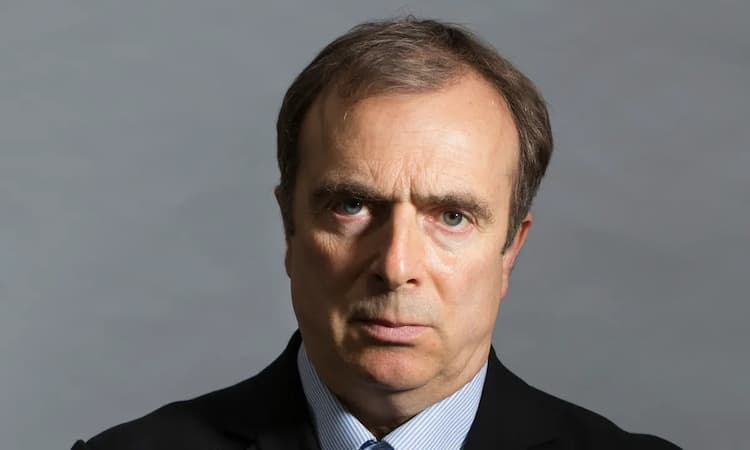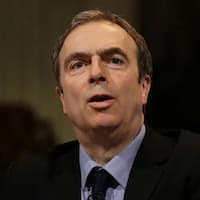Peter Hitchens Biography
Peter Hitchens is an English conservative writer, presenter, journalist, and commentator who works for The Mail on Sunday and previously worked as a foreign correspondent in Moscow and Washington, D.C. Peter Hitchens has written for The Spectator, The American Conservative, The Guardian, First Things, Prospect, and the New Statesman. His publications include The Abolition of Britain, The Rage Against God, The War We Never Fought, and The Phoney Victory.
How old is Peter Hitchens? – Age
He is 72 years old as of 28 October 2023. He was born in 1951 in Sliema, Malta. His real name is Peter Jonathan Hitchens.
Peter Hitchens Family – Education
Peter Hitchens was born in Malta, where his father, Eric Ernest Hitchens, was a naval officer stationed in the Royal Navy’s Mediterranean Fleet at the time. His mother, Yvonne Jean Hitchens, met Eric while serving with the Women’s Royal Naval Service (Wrens) during WWII. Hitchens aspired to be a Royal Navy officer, just like his father. However, when he was ten, he discovered he had a lazy eye that could not be cured, preventing him from enlisting in the Royal Navy. Hitchens attended Mount House School, Tavistock, The Leys School, and the Oxford College of Further Education before being accepted to the University of York, where he studied Philosophy and Politics and was a member of Alcuin College. He graduated in 1973.
Peter Hitchens Brother
Hitchens had only one sibling, journalist and novelist Christopher Hitchens, who was two years older. Christopher stated in 2005 that the major distinction between the two was believing in the existence of God. Peter was a member of the International Socialists (forerunners of the contemporary Socialist Workers’ Party) from 1968 to 1975 (starting at the age of 17), after Christopher introduced him to them. The brothers fell out after Peter wrote an essay in The Spectator in 2001 that accused Christopher of being a Stalinist.
The two brothers reconciled following the birth of Peter’s third kid. Peter’s criticism of his brother’s book God Is Not Great sparked a public debate between the siblings, but no further alienation. In 2007, the brothers participated as panelists on BBC TV’s Question Time, where they disagreed on several matters. In the United States in 2008, people questioned the 2003 Iraq invasion and the presence of God. The two argued the existence of God in civilisation at the Pew Research Center in 2010. Christopher died in 2011, and at his memorial service in New York, Peter recited Philippians 4:8, which Christopher had read at their father’s death.
Peter Hitchens Wife – Children
Hitchens and Eve Ross married in 1983. They have one daughter and two sons. Dan, their oldest son, served as editor of the Catholic Herald, a Roman Catholic daily based in London. Hitchens resides in Oxford.
Peter Hitchens Net Worth
He has an estimated net worth of $5 million.
Does Peter Hitchens believe in God?
Hitchens was raised in the Christian faith and attended Christian boarding schools, but later became an atheist, abandoning his faith at the age of 15. He returned to the church later in life and is now an Anglican and Church of England member.

Hitchens is of Jewish origin through his maternal grandmother, who is the daughter of Polish Jewish immigration. His grandmother shared this when he met his wife Eve Ross. Though his brother Christopher quickly accepted his Jewish identity based on the premise of matrilineal lineage, Peter remarked that they were only one-32nd Jewish by descent and has not recognized as Jewish himself.
Peter Hitchens Career
He joined the Work Party in 1977 however left not long after lobbying for Ken Livingstone in 1979, thinking it was inappropriate to convey a party card while straightforwardly revealing legislative issues, and corresponding with a summit of developing individual frustration with the Work development.
Hitchens started his editorial vocation on the nearby press in Swindon and afterward at the Coventry Night Transmit. He then worked for the Everyday Express somewhere in the range of 1977 and 2000, at first as a journalist gaining practical experience in training and modern and work issues, then, at that point, as a political correspondent, and thusly as delegate political supervisor. Passing on parliamentary news-casting to cover safeguard and political issues, he provided details regarding the decay and breakdown of socialist systems in a few Warsaw Settlement nations, which finished in a stretch as Moscow journalist and covering life there during the last a very long time of the Soviet Association and the early long periods of the Russian League in 1990-92. He partook in revealing the UK 1992 general political decision, intently following Neil Kinnock. He then turned into the Day to day Express Washington journalist. Getting back to England in 1995, he turned into an observer and editorialist.
Hitchens detailed from Somalia at the hour of the Assembled Countries mediation in the Somali Nationwide conflict. In 2000, Hitchens left the Day to day Express after its obtaining by Richard Desmond, expressing that working for him would have addressed an ethical irreconcilable situation. Hitchens joined The Mail on Sunday, where he has a week by week segment and weblog in which he discusses straightforwardly with perusers. Hitchens has likewise composed for The Onlooker and The American Moderate magazines, and infrequently for The Watchman, Prospect, and the New Legislator.
In the wake of being shortlisted in 2007 and 2009, Hitchens won the Orwell Prize in political news coverage in 2010. Peter Kellner, one of the Orwell Prize appointed authorities, portrayed Hitchens’ composition as being “as firm, cleaned and possibly deadly as a Patrol’s boot.”
A standard on English radio and TV, Hitchens has been on Question Time, Any Inquiries?, This Week, The Day to day Governmental issues and The Unavoidable issues. He has created and introduced four narratives; one on the BBC about Euroscepticism, and three on Channel 4, remembering one for the reconnaissance state, and basic assessments of Nelson Mandela and David Cameron. In the last part of the 1990s, Hitchens co-introduced a program on Live Radio UK with Derek Draper and Austin Mitchell.
In 2010, Hitchens was depicted by Edward Lucas in The Financial expert as “a strong, persevering, expressive and courageous columnist. He lambasts wooly reasoning and slanted conduct at home and abroad.” In 2009, Anthony Howard composed of Hitchens, “the old progressive communist has lost nothing of his enthusiasm and outrage as the years have cruised every one of us by. Simply the convictions have changed, not the enthusiasm and obsession with which they keep on being held.”
Peter Hitchens Books
Hitchens is the author of two books: The Abolition of Britain (1999) and A Brief History of Crime (2003), both of which criticize developments in British culture after the 1960s. Monday Morning Blues, a collection of his Daily Express writings, was published in 2000. In April 2004, A Brief History of Crime was reprinted as The Abolition of Liberty, with an added chapter on identity cards (“Your papers, please”) and the removal of two chapters: gun control (“Out of the barrel of a gun”) and capital punishment (“Cruel and unusual”).
The Broken Compass: How British Politics Lost its Way was published in May 2009, while The Rage Against God was released in Britain in March 2010 and in the United States in May. Bloomsbury published Hitchens’ book The War We Never Fought: The British Establishment’s Surrender to Drugs, which discusses what he perceives as the non-existence of the drug war, in the autumn of 2012.
In June 2014, Hitchens released his first e-book, Short Breaks in Mordor, a collection of overseas reports. I.B. Tauris published The Phoney Victory: The Illusion of World War II in August 2018. It covers what Hitchens considers to be the national myth of World War II, which he argues caused long-term damage to Britain and its global standing.
